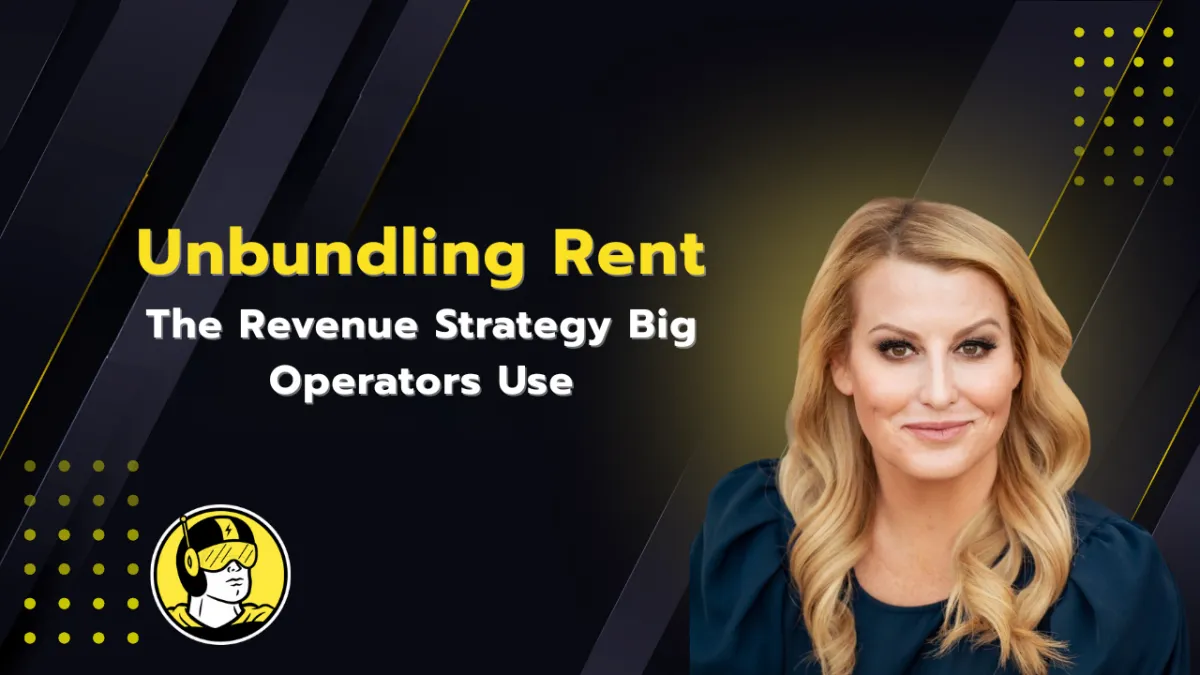
Unbundling Rent – The Revenue Strategy Big Operators Use
Unbundling Rent – The Revenue Strategy Big Operators Use
For years, large institutional owners have quietly mastered a tactic that many smaller multifamily operators overlook: unbundling rent. By separating utility charges and other services from base rent, they’re maximizing property revenue without raising advertised rents. And guess what? This strategy is just as accessible to you—especially when paired with our BRRRR 2.0 framework.
Let’s break down exactly why this works, how to do it legally and effectively, and how to roll it out in a way that keeps your tenants happy.
Why ‘All-In-One’ Pricing is Costing You Money
Bundling rent with utilities and amenities might seem like a way to simplify things, but in reality, it often creates confusion and leaves money on the table. Here’s why:
Tenants can’t see the value of what they’re getting. A $1,700/month apartment might include water, parking, and pet access—but your tenant doesn’t realize they’re paying for all of that.
You can’t increase your income without raising rent. That $1,700 has no flexibility. If you want to recover utility costs or add a service, you’d have to increase the base rent, which triggers rent caps in some markets and leads to tenant resistance.
You’re absorbing unpredictable costs. Water rates, trash services, and even WiFi plans fluctuate. If those expenses go up and you’re not billing them separately, you’re eating into your NOI.
Unbundling allows you to itemize—and monetize—everything your residents use. And when done right, it boosts NOI without raising rent.
The BRRRR 2.0 Advantage: Reduce Before You Renovate
At Utility Ranger, we believe in reducing expenses and unbundling income before renovating units. This updated approach to BRRRR helps you unlock property value faster, cheaper, and with less tenant disruption.
Want to increase cash flow before your next refinance? Start with unbundling.
Let’s look at how.
What Should You Unbundle From Rent?
Here are the most common revenue streams that big operators separate out—and how much they typically charge:
1. Utility Billing (Water, Sewer, Trash)
Using RUBS or flat fees, you can charge residents their fair share. (If you're using Utility Ranger, this process is fully automated.)
💡 Typical Charges:
Water/sewer: $30–$75/month
Trash: $10–$30/month
2. Pet Rent
Rather than just collecting a one-time pet deposit, smart operators charge pet rent every month.
💡 Typical Charges:
$25–$50/month per pet
3. Parking Fees
Even in properties where everyone “gets a space,” parking should be treated as an amenity.
💡 Typical Charges:
$50–$150/month (more in urban areas)
4. Storage Lockers or Sheds
If you have extra closets, garages, or outdoor sheds, these can generate monthly income.
💡 Typical Charges:
$25–$100/month
5. WiFi and Bulk Internet
Offer managed WiFi service as a convenience and mark up the cost.
💡 Typical Charges:
$40–$60/month per unit (with $10–$20 profit per unit)
6. Amenity Fees (Gyms, Pools, Clubhouses)
Rather than rolling these into rent, charge an access fee.
💡 Typical Charges:
$15–$50/month
You can even experiment with “concierge” add-ons like trash valet, laundry service, or package lockers—just make sure it aligns with your tenant base.
How to Roll Out Unbundling Without Losing Tenants
The key is transparency and timing.
Here’s how to do it:
1. Start at Lease Renewal
Don’t change billing mid-lease. Instead, roll out your updated rent structure when leases renew. This gives tenants time to adjust.
2. Explain the Value
Instead of raising rent by $75, say: “We’ve separated utilities and services so you only pay for what you use.”
Most tenants appreciate clarity, especially if you explain:
They're paying only for their own usage (RUBS)
Amenity fees are optional
Rent stays stable while costs are predictable
3. Use Resident-Friendly Language
Say this:
“WiFi included at a discounted rate”
“Optional parking available for $50/month”
“Transparent utility billing—no hidden fees!”
Avoid this:
“Rent going up 5% due to water costs”
“Mandatory amenity fee”
The better you explain it, the fewer objections you’ll hear.
What Fees Are Legal in Your Market?
Before implementing any fee structure, make sure it’s compliant with local and state laws.
Here are some best practices:
Check local rent control laws for limits on additional fees.
Use a lease addendum that clearly outlines all non-rent charges.
Ensure utility billing methods like RUBS are allowed in your state (many allow it if disclosed in the lease).
Avoid deceptive pricing. Your rent ads should show base rent only, with a clear outline of extra charges.
When in doubt, consult a local landlord attorney or your local apartment association.
Results You Can Expect
Unbundling rent can unlock thousands in revenue per year. Let’s do the math:
Example: 20-Unit Property
$40/month RUBS billing x 20 = $800/month ($9,600/year)
$50/month parking x 10 = $500/month ($6,000/year)
$30/month pet rent x 5 = $150/month ($1,800/year)
$25/month WiFi markup x 20 = $500/month ($6,000/year)
👉 Total: $23,400/year in added NOI
At a 5% cap rate, that’s $468,000 in increased property value.
The Bottom Line
Unbundling isn’t just about extra income—it’s about efficiency, transparency, and smart portfolio growth. And if you're following the BRRRR 2.0 model, it's one of the fastest ways to boost value without lifting a hammer.
This is how the pros play. Now it's your turn.
📥 Want to Start Unbundling Your Rent? Download our free Unbundling Rent Guide to see the top fees, legal tips, and a step-by-step rollout plan you can use right away.
